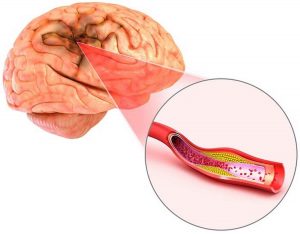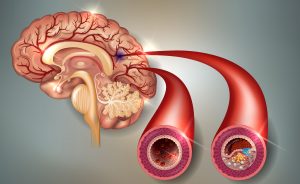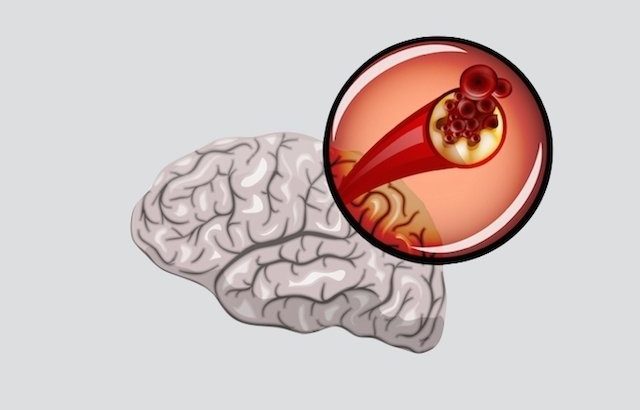Atherosclerosis of the cerebral vessels is a severe, slowly flowing disease, the essence of which is a violation of fat metabolism. Atherosclerosis of cerebral vessels steadily leads to a deterioration in the functions of the central nervous system, the likelihood of mental disorders and stroke.
Cerebral atherosclerosis (ASGM) is characterized by the accumulation of cholesterol plaques on the walls of the arteries. Over time, they grow, the narrowing of the vascular lumen in the brain area progresses. The result is a dangerous lack of blood supply. The carotid arteries are usually affected. The disease threatens with a serious complication in the form of a stroke.
Atherosclerosis of cerebral vessels
The reason for the development of the problem is the failure of lipid metabolism.
ASGM factors
Age;
heredity;
dietary protocol with excess cholesterol;
excess weight;
smoking and addiction to alcohol;
passive lifestyle;
chronic diseases (hypertension, diabetes);
stress.
ASGM symptoms
Insomnia, restless sleep, difficulty falling asleep;
loss of sensation on the right or left side of the body;
excruciating headaches;
high cholesterol (blood tests):
unsteadiness of gait and problems with coordination of movements;
vision problems – “flies” before the eyes, hum in the ears;
irascibility, anxiety, mood swings;
fatigue, lethargy, distraction;
trembling of the chin, arms, legs;
memory impairment (especially short-term);
the occurrence of facial asymmetry.
Symptoms at different stages of the disease
1. At the initial stage, problems appear only after physical / emotional activity and go away by themselves in a calm state. The key symptom is asthenia, which is accompanied by fatigue, impaired attention. Worried about a headache, a buzzing in the ears, difficulty with memory – the past is remembered, but fresh information is poorly remembered.
2. With the development of ASGM, anxiety, suspiciousness, depression, mood swings are observed. The memory problem gets worse. The headache becomes constant. There is a hum in the ears, dizziness, impaired speech, unsteadiness of gait, deterioration of hearing and vision, tremor of the hands, feet and head.
3. In the advanced stage of atherosclerosis, dementia progresses, the patient needs serious care, as he loses the ability to serve himself.
Therapy ASGM
The basis of therapy is lifestyle correction:
low lipid diet
quitting smoking and alcohol,
reasonable exercise,
stress control.
Drug therapy includes lipid-lowering, antiplatelet, antihypertensive and antioxidant drugs, drugs to optimize microcirculation.
In difficult cases, an operation is prescribed.
Diet for ASGM
It is important to limit consumption:
any meat,
confectionery, sweets,
egg yolks,
trans fats.
Exclude:
alcohol,
sausages,
fast food.
It is recommended to include in the food protocol:
any vegetables
cereals,
fruit,
turkey and chicken fillet,
fish.
It is important to exclude fried foods, and steam, boil or eat fresh foods (vegetables).
Prevention of ASGM
exclusion of smoking,
diet,
moderate physical activity https://en.wikipedia.org/wiki/Physical_activity.
It is important to normalize the emotional background, control stress.
